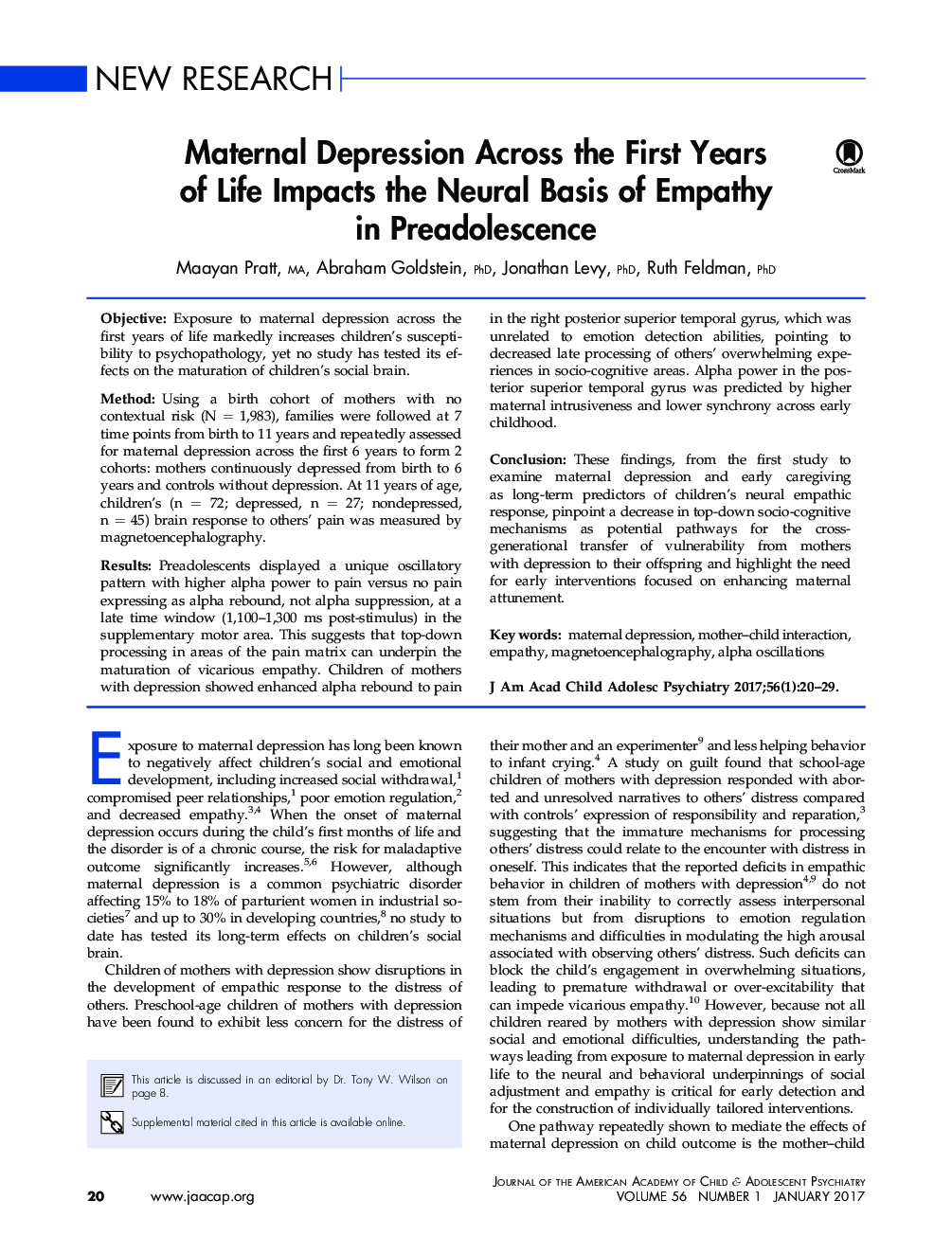| Article ID | Journal | Published Year | Pages | File Type |
|---|---|---|---|---|
| 4931591 | Journal of the American Academy of Child & Adolescent Psychiatry | 2017 | 13 Pages |
ObjectiveExposure to maternal depression across the first years of life markedly increases children's susceptibility to psychopathology, yet no study has tested its effects on the maturation of children's social brain.MethodUsing a birth cohort of mothers with no contextual risk (N = 1,983), families were followed at 7 time points from birth to 11 years and repeatedly assessed for maternal depression across the first 6 years to form 2 cohorts: mothers continuously depressed from birth to 6 years and controls without depression. At 11 years of age, children's (n = 72; depressed, n = 27; nondepressed, n = 45) brain response to others' pain was measured by magnetoencephalography.ResultsPreadolescents displayed a unique oscillatory pattern with higher alpha power to pain versus no pain expressing as alpha rebound, not alpha suppression, at a late time window (1,100-1,300 ms post-stimulus) in the supplementary motor area. This suggests that top-down processing in areas of the pain matrix can underpin the maturation of vicarious empathy. Children of mothers with depression showed enhanced alpha rebound to pain in the right posterior superior temporal gyrus, which was unrelated to emotion detection abilities, pointing to decreased late processing of others' overwhelming experiences in socio-cognitive areas. Alpha power in the posterior superior temporal gyrus was predicted by higher maternal intrusiveness and lower synchrony across early childhood.ConclusionThese findings, from the first study to examine maternal depression and early caregiving as long-term predictors of children's neural empathic response, pinpoint a decrease in top-down socio-cognitive mechanisms as potential pathways for the cross-generational transfer of vulnerability from mothers with depression to their offspring and highlight the need for early interventions focused on enhancing maternal attunement.
